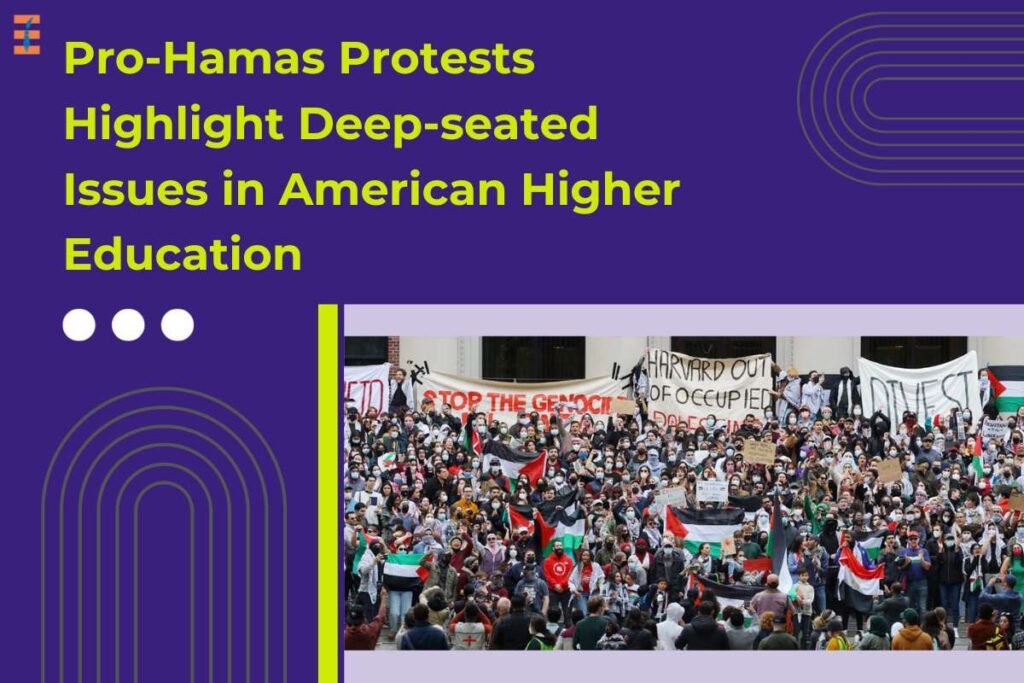American colleges and universities are under scrutiny for their response to the recent conflict in the Middle East, particularly regarding the actions of Hamas, which has involved mass murder, burning, rape, and abductions of Israelis. This response has raised a burning question: How could institutions of American higher education witness some of their students celebrating these atrocities, while many university presidents equivocate or stay silent in the face of such brutal attacks? The celebration of Hamas’ actions by students and faculty seems unfathomable, and the lack of moral clarity and non-judgmentalism exhibited by university administrators is not just irresponsible but reprehensible. This situation signifies a profound failure at the core of American higher education.
Unsettling Facet of Higher Education
The ongoing war between Israel and Hamas has exposed an unsettling facet of higher education, similar to the disconcerting revelations that parents of K-12 students experienced during the pandemic-related school closures when they discovered the nature of the curriculum being taught to their children. People are now awakening to the moral confusion that appears to permeate many of our universities.
This situation contributes to the already eroding confidence in American higher education, as reported by Gallup over the past decade. A significant contributing factor to this moral decay is the prevalence of moral relativism in American classrooms. Allan Bloom warned about this as early as 1987 when he stated that most students entering universities believed that truth was relative.
Bloom noted that this relativism extended beyond theory and became a moral postulate, with the concept of the relativity of truth being the one virtue taught to students. He argued that modern universities promoted the idea that there is no absolute truth, only different lifestyles. Postmodern ideologues further emphasized this perspective, convincing an entire generation that there was no objective truth or right and wrong, framing all moral judgments as expressions of power dynamics.
The Abolition of Man
Back in 1943, C.S. Lewis, in “The Abolition of Man,” similarly warned about the consequences of miseducation. He cautioned that we were creating a generation with no moral foundation, and then we were shocked to find a lack of virtue and integrity. He argued that we were producing individuals without the moral “chests” required for virtuous actions.
This moral decline has been ongoing, and it is not surprising that American higher education is facing the challenges it does today. Even the former dean of Harvard College, Harry Lewis, voiced concerns in 2006 about the institution’s dwindling interest in moral education, noting that there was no consensus on what constituted good character. He observed a growing trend where moral principles were isolated within the curriculum or, in some cases, removed entirely.
In many institutions, the curriculum has been transformed, with ideology taking precedence over scholarship. An intentional project aimed at deconstructing the Judeo-Christian worldview and Western civilization has been underway. Neo-Marxist critical theory, including post-colonial theory, has been prioritized, while radical Islamist claims, such as the intent to obliterate Israel, have not been given the same level of attention.
This shift has led to movements like the Boycott, Divestment, and Sanctions (BDS), which aim to undermine Israel by labeling it an “apartheid state.” There are reports of “Jew-free zones” on university campuses. All of this occurred before recent events in October, revealing the depth of the moral confusion and ideological narratives that have taken hold.
To address these issues in American higher education, some have proposed safeguarding free speech and ensuring the protection of students, especially those who are Jewish. Teaching ethics courses and promoting critical thinking have also been suggested. While these are valuable measures, they may not be sufficient.
Necessity for a Radical Approach
A more radical approach may be needed. First, there should be a departure from the radical skepticism that rejects the existence of objective truth and morality. A focus on restoring a moral and ethical foundation within higher education is crucial. Reevaluating the balance between ideology and scholarship and refocusing on core educational principles will be essential to address these deep-seated issues. By taking these steps, American higher education can begin the process of rectifying the moral crisis it faces and restoring the values that it once held dear.

